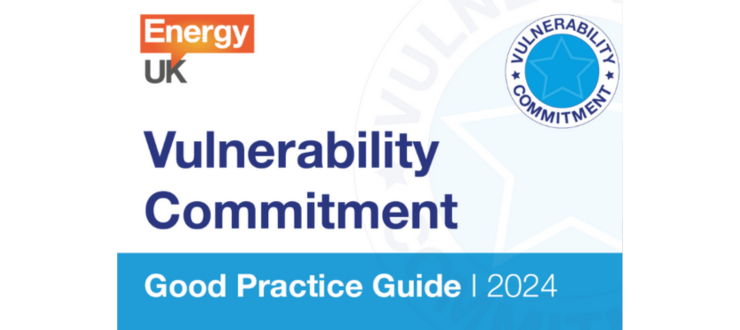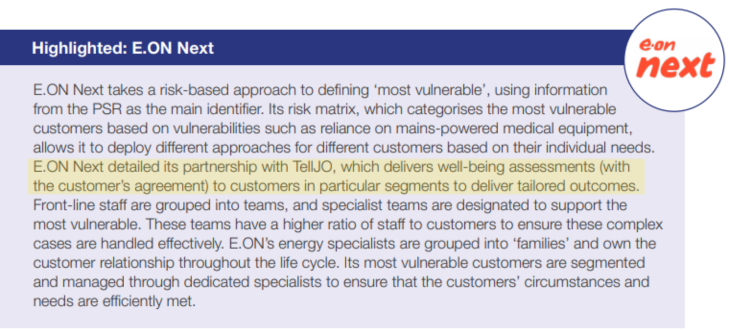Key takeaways from Energy UK’s Vulnerability Commitment Good Practice Guide 2024
Published: Oct 30, 2024
Publications
Three things any company who supports vulnerable customers can learn from this year’s Vulnerability Commitment Good Practice Guide.
What is the Vulnerability Commitment Good Practice Guide 2024?
Created by Energy UK, the guide features valuable information on how 13 energy suppliers are supporting their energy customers across three key themes:
- How do energy companies define customers who are considered most vulnerable?
- How do energy companies ensure all customers are genuinely offered an affordable repayment plan? How is this communicated to staff and members?
- How do energy companies ensure that customers with pre-payment meters do not have vulnerabilities they are not aware of over the long term?
It follows presentations by all 13 signatory energy companies to an expert panel on their compliance with Energy UK’s Vulnerability Commitment as well as the above three themes.
Energy companies who have signed up to Energy UK’s Vulnerability Commitment are: British Gas, E, Ecotricity, EDF, E.ON Next, Good Energy, Octopus Energy, Outfox the Market, OVO Energy, ScottishPower, So Energy, Utilita, Utility Warehouse.

What can other industries learn from it?
For anyone working in industries that have contact with a high number of vulnerable customers, for example water, finance and housing associations, it has detailed insights and good practice on the treatment of vulnerable customers. Read the full guide here.
Key takeaways
1. There’s no right way to structure your customer contact team – as long as it works
There are several examples of how companies set up their front-line contact with customers, with a great deal of variety in approaches. Suggesting that if it’s working for your customers and your team, there isn’t a ‘one size fit’s all’ solution. Some providers ensure all front-line staff are trained in spotting and supporting those with vulnerabilities and can flag to a team leader where needed, others have specialist teams, or certain advisors who deal with specific vulnerabilities.
2. Affordable re-payment plans require empowered front-line staff
To be able to create something that genuinely suits the customer’s needs. Front-line staff must have the necessary power, processes and ability to make informed decisions. This includes:
- access to budgeting and benefit calculators
- empowering staff to take as much time as they need on contact calls with the customer
- the ability to confidently set repayment plans only escalating exceptional cases where needed.
3. Regular check-ins are crucial
Vulnerability isn’t static. Once customers are on a re-payment plan, it’s crucial to have processes in place to check that it stays affordable for the customer. Another thing to monitor is self-disconnection or self-rationing, whether it’s energy and water usage, or spending etc. this can be an indicator of a customer’s needs or situation changing.
Where does TellJO fit in?
TellJO also gets a mention in the guide on page 9 – highlighting our work with E.ON Next, who use our digital wellbeing checks to deliver tailored outcomes for customers.

We’re also currently working with two of the three companies who were mentioned for particularly impressing the Expert Panel across all three themes – E.ON Next and EDF.
Want to find out how digital wellbeing checks can help your company support vulnerable customers and create affordable re-payment plans? Let’s chat.